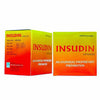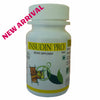Positive Cholesterol Management
The amount of cholesterol in the blood – both HDL and LDL – can be measured with a blood test. The recommended cholesterol levels in the blood vary between those with a higher or lower risk of developing arterial disease.

Evidence strongly indicates that high cholesterol can increase the risk of:
- narrowing of the arteries (atherosclerosis)
- heart attack
- stroke
- transient ischaemic attack (TIA) – often known as a "mini stroke"
- peripheral arterial disease (PAD)
This is because cholesterol can build up in the artery wall, restricting the blood flow to your heart, brain and the rest of your body. It also increases the risk of a blood clot developing somewhere in your body.
Your risk of developing coronary heart disease also rises as your blood's cholesterol level increases. This can cause pain in your chest or arm during stress or physical activity (angina).
Many factors can increase your chances of having heart problems or a stroke if you have high cholesterol.
These include:
- an unhealthy diet – in particular, eating high levels of saturated fat
- smoking - a chemical found in cigarettes called acrolein stops HDL transporting cholesterol from fatty deposits to the liver, leading to narrowing of the arteries (atherosclerosis)
- having diabetes or high blood pressure
- having a family history of stroke or heart disease
High cholesterol, also known as hypercholesterolemia, is a major risk factor for heart disease and stroke. High cholesterol can be inherited, but it's often the result of unhealthy lifestyle choices, and thus preventable and treatable.
Unless your cholesterol is dangerously high, lifestyle modifications—such as exercising regularly and eating a heart-healthy diet—are often recommended as the first line of treatment.
Losing weight can help bring your good cholesterol up and your bad cholesterol down.
High cholesterol, also known as hypercholesterolemia, is a major risk factor for heart disease and stroke. High cholesterol can be inherited, but it's often the result of unhealthy lifestyle choices, and thus preventable and treatable.
Unless your cholesterol is dangerously high, lifestyle modifications—such as exercising regularly and eating a heart-healthy diet—are often recommended as the first line of treatment.
Research has also reported an 8-percent decrease in Total Cholestrol and slightly increased HDL after just four weeks of moderate-intensity (75 percent of maximum heart rate) jogging. Cholesterol changes occurred in just 20 exercise sessions of 30 minutes each. This same study reported that LDL- size changed, making it less prone to cause heart disease. Other research suggests that the greatest cholesterol improvements occur with inactive people who lose weight, indicating that weight management and weight loss are important for improving cholesterol.
Healthy Diet : Dietary modifications combined with weight loss can lower LDL cholesterol by as much as 20 to 30 percent. Heart-healthy diets promote fruits, vegetables, whole grains, and legumes and limit foods high in sugar, sodium, and saturated fat. Vegetable shortening and any item made with hydrogenated oil contains trans fat and should be avoided. What sets heart-healthy diets apart from others is the emphasis on good fats, such as those found in fish, nuts, olive oil, avocados, and seeds. When used in place of saturated and trans fats, these oils—known as polyunsaturated and monounsaturated fats—can help reduce cholesterol. Some research also indicates that avoiding refined carbs may boost “good” HDL cholesterol and lower triglycerides. Refined carbohydrates include white rice, white bread, soft drinks, and baked goods.
Weight Loss : People who are obese—having a body mass index (BMI) more than 30—tend to have lower levels of “good” HDL and higher levels of “bad” LDL cholesterol and triglycerides than people of normal weight. Losing weight can help bring your good cholesterol up and your bad cholesterol down. Research shows that for every kilogram (2.2 pounds) of weight that an obese or overweight person loses, they may be able to raise their HDL by .35 mg/dL.
Some research suggests that what you eat to lose weight may also affect your cholesterol outcome. According to a study in the Archives of Internal Medicine, people who ate a low-calorie, low-carbohydrate diet high in plant-based protein had the biggest LDL-lowering benefit compared to people who lost weight on other kinds of diets. See Nattura's Meal Replacement options
Avoid or Quit Smoking :Quitting smoking is good for your heart in more ways than one. Research shows that giving up cigarettes can increase a person’s “good” HDL by 4 mg/dL, on average. HDL helps clear the body of artery-clogging “bad” LDL cholesterol.
Exercise : Research shows that being inactive elevates LDL. Exercise, on the other hand, can lower it. Moderate activity like brisk walking can also help lower triglycerides, while vigorous exercise like running can boost HDL. Cardiovascular exercise can also strengthen your heart and reduce blood pressure, which is a major risk factor for stroke.







